Rosalía covers the Summer 2020 issue of ELLE magazine photographed by Zoey Grossman and styled by Natasha Royt.

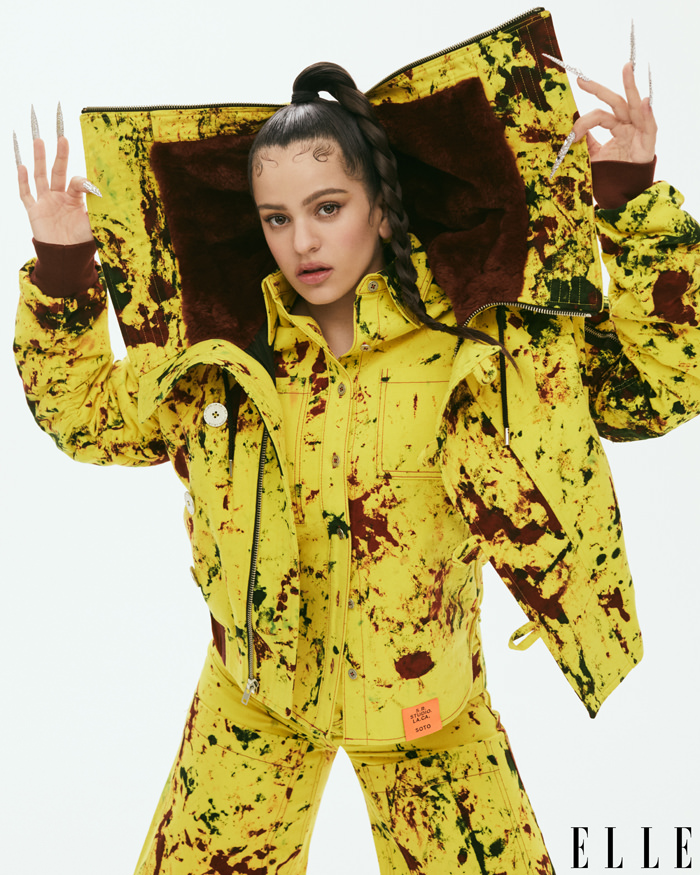
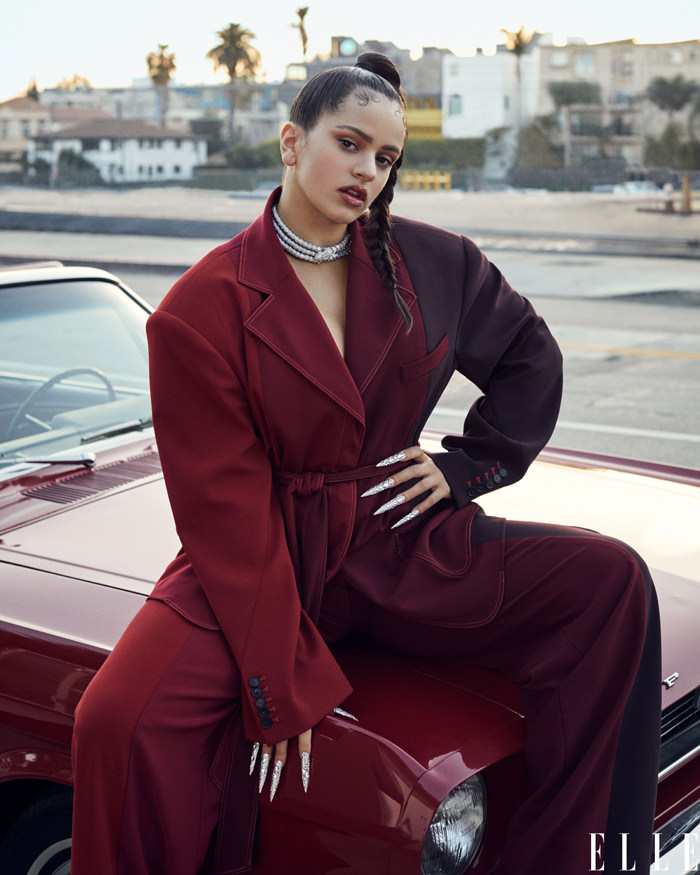
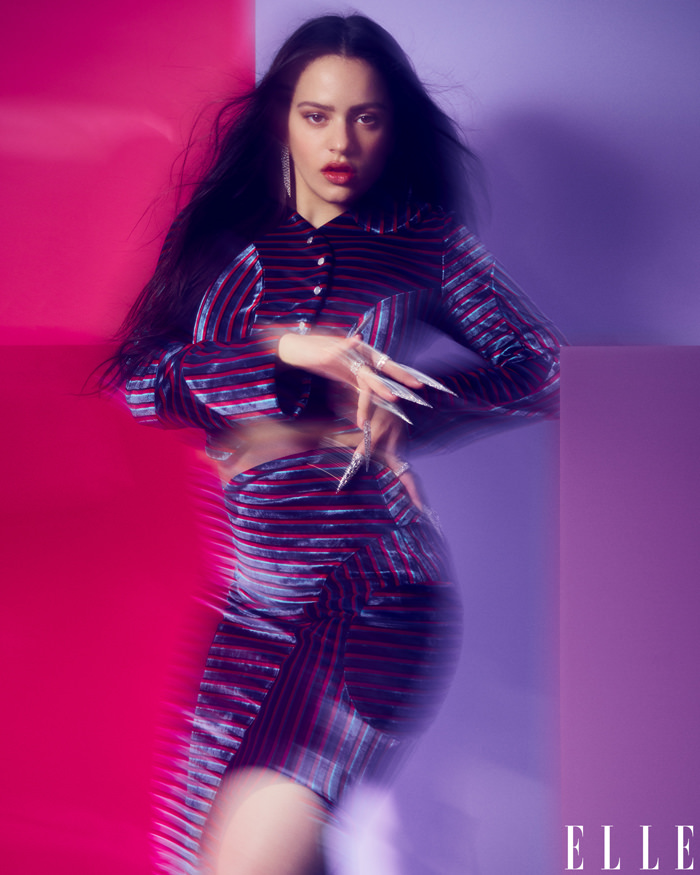
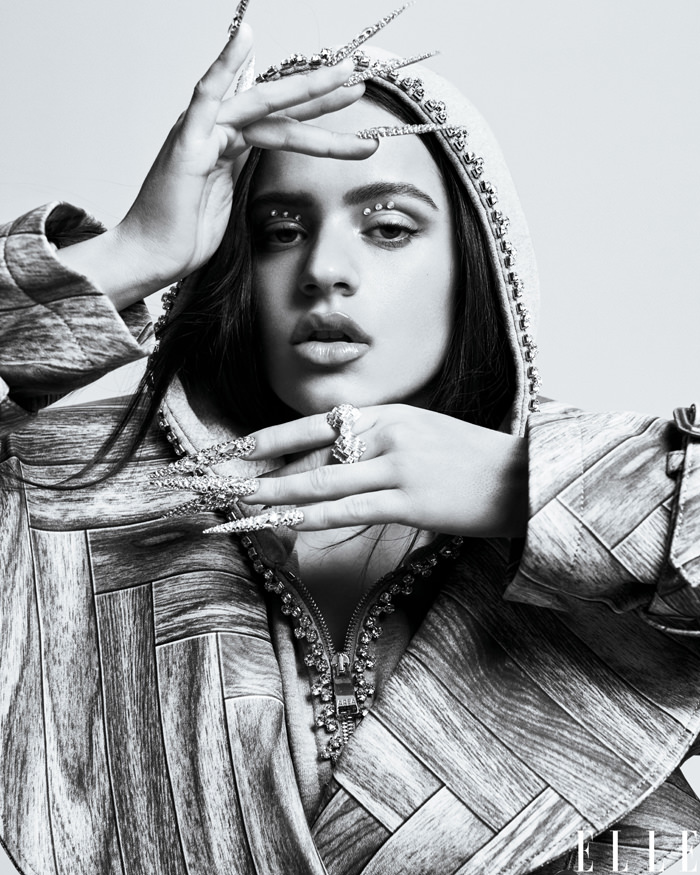
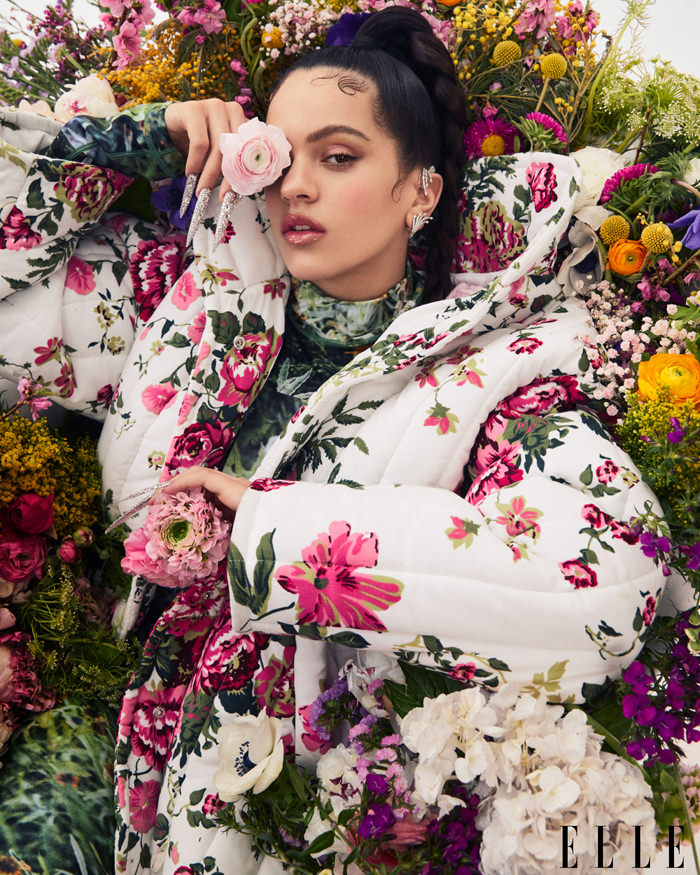
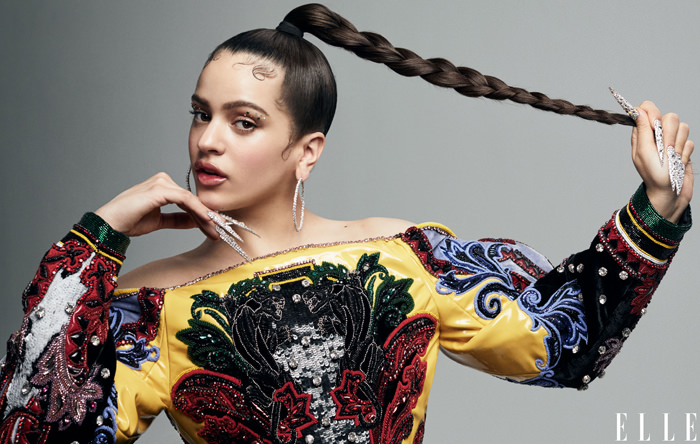
On isolating far from her family: Rosalía is scheduled to fly back home to Spain, where the COVID-19 crisis is spiraling, a couple of days later, but the lockdowns force a sudden change of plans, and she ends up isolating in Miami, where her manager, Rebeca León, lives: “It’s always hard to be far from your family, in another country, and more so at a moment like this,” Rosalía says. “But given the situation, I’m lucky to have great friends here in Miami I can lean on.” Other than missing her family and friends back home, the hardest part has been “having to stop suddenly, since I’m a person who is always involved in lots of projects and traveling all over the place,” she says. “What’s changed for me is realizing that from one day to the next, there are things that can cease to exist. It’s like the world stopped, literally.”
She may have dropped a new song, “Dolerme” at the height of the pandemic, but Rosalía also understands that it’s important to be kind herself right now, too: “I’m making progress on my music, but notwithstanding, I wanted to remark on something that seems to be happening to a lot of people, myself included,” she says. “There’s this kind of pressure to be creative or busy most of the time, with lots of activities and progress, and I’m trying to run from that. I’m trying to do things that help keep me mentally healthy, and if that includes making music, then great. But I won’t lie—there are days when I just watch a show and eat a packet of cookies.”
On performing at the Grammy Awards: “The Grammys experience, really, was like, ‘Wow’. It was a big deal for me. My whole life, I’ve watched the artists I most admire perform on that stage, you know? And suddenly, to find myself singing flamenco and dancing a little seguidilla [a Spanish dance in triple time], I felt so grateful, I swear. I felt so embraced. I cried in the car on my way to every rehearsal. I couldn’t believe what was happening.”
On how she was introduced to Flamenco: The genre of music Rosalía is most often linked with, combines various folklore traditions from Andalusia, in southern Spain, and is closely associated with the Romani people. The factories outside Rosalía’s town attracted workers from Andalusia, and their children—Rosalía’s classmates and friends—introduced her to flamenco. “I’d never heard flamenco in my whole life until I was 13,” she says. Music had always served a spiritual function for her—it made her feel connected, it calmed her, it made her move—but flamenco took hold of her imagination in a way nothing had before. “It is one of the most sincere forms of music out there,” she says. “The most honest, most passionate, most visceral.” She began studying flamenco singing as well as the piano, the instrument she now composes on.
On how discipline is essential to her music: “People might think it’s such a tra-la-la life, but it’s the opposite. I’m in the studio all the time, chipping away.” It’s all about discipline, she says: “How much do you care about your vision and being faithful to it?”
On Rosalía’s second album, El Mal Querer, released in November 2018, which began as her thesis project about a toxic relationship: “That relationship you know is going to end badly, but even though you know, you go ahead and do it,” she says. “I wanted to investigate possessiveness and jealousy, and talk from a place of a [dark] love.” She produced the album with Pablo Díaz-Reixa, better known as El Guincho, over a two-year period, in his tiny fifth-floor walk-up apartment in the Born district of Barcelona. “We did it with a sound card, a microphone, two computers, and a MIDI keyboard,” she says. “Just Pablo and me.” Rosalía thinks the important thing in making music is that it come from the heart. “I studied this music because I love it, and I try to make my music from that place of respect for a tradition that I love so much,” she says. She doesn’t let the criticism get her down. When she considers where she is today, the only word she can think of to describe it is “mind-blowing.”
On her success, famous fans and making music from your heart: Less than a year has gone by since Rosalía first found paparazzi waiting for her outside her recording studio. And when she thinks of whom she counts among her fans, she can’t believe it. “Like, man, I don’t know! People who are a part of global pop culture! David Byrne came to my concert in New York. And Caetano Veloso. And Frank Ocean. I was having a heart attack!” She’s reminded of how, four years before that concert, she’d posted a video on YouTube. “The first video I ever made on my YouTube channel—you can still see it—is of me singing the only cover I’ve ever done. It was Frank Ocean’s ‘Thinkin Bout You.’ Oh my God!”
R&B musician James Blake points to her work ethic as a key to her success: When he and Rosalía collaborated on the song “Barefoot in the Park,” he says, “I gave her the premise of the song and she did her thing. She was so fast and consummately professional.… She was superfocused but at the same time very creative with it and incredibly musical.”
“With music, you never know what will happen,” she says. “It’s not up to you. But if you make it from your heart and your truth, people will notice.”
The issue hits newsstands on June 2.
[Photo Credit: ELLE Magazine]
“Killing Eve” Star Jodie Comer in Dice Kayek and Palmer Harding Next Post:
WERQ From Home: Katy Perry in Richard Quinn and Cecilie Bahnsen on “American Idol”
Please review our Community Guidelines before posting a comment. Thank you!



